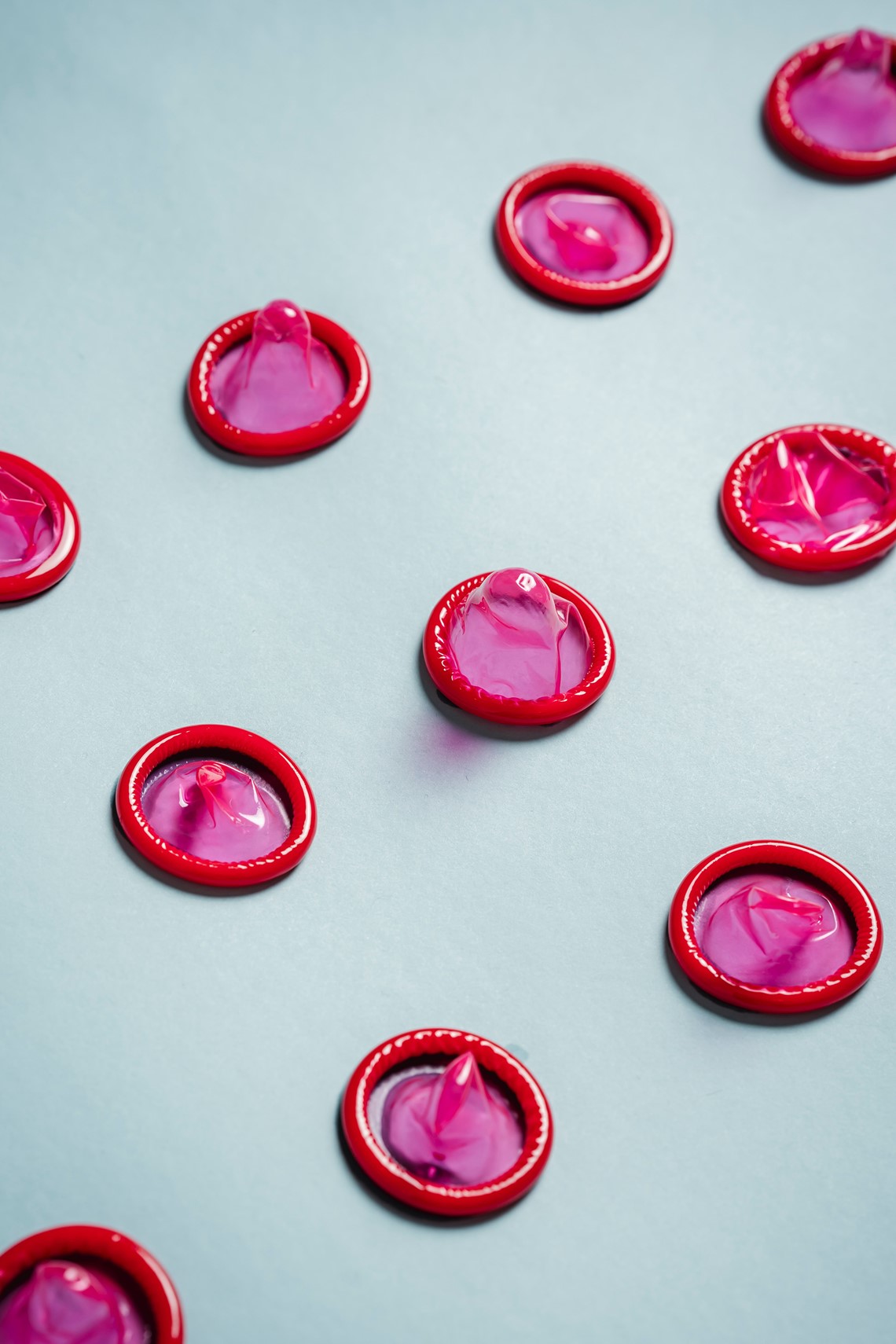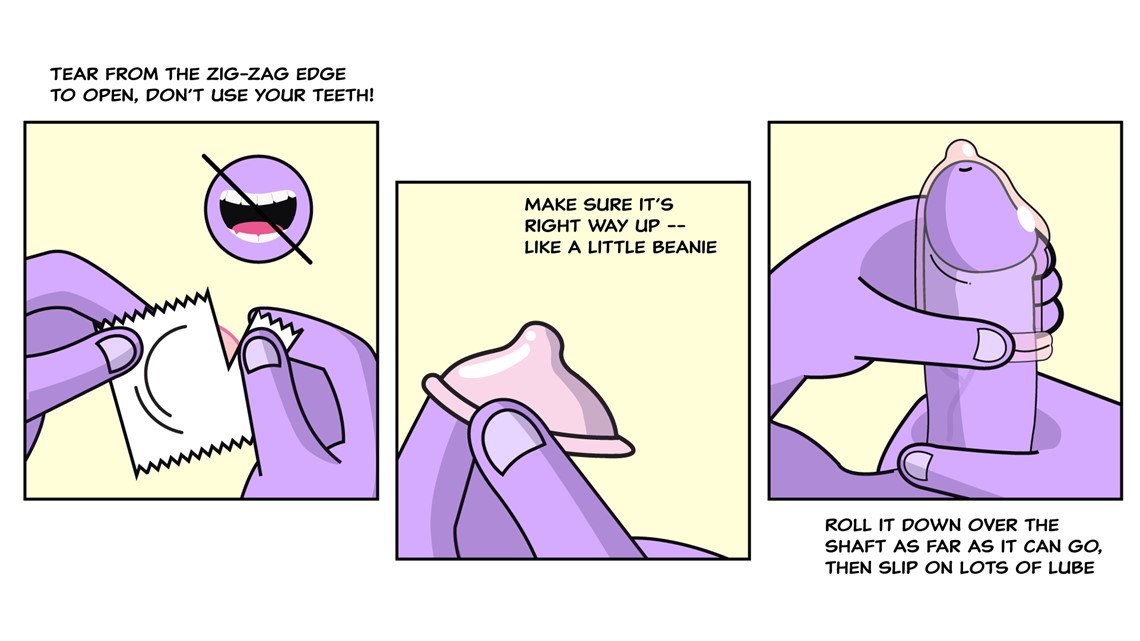How to prevent HIV and STIs
It’s likely that you had some sort of sex education at school, or someone in your life has talked about condoms, pregnancies, sexually transmitted infections (STIs - sometimes referred to as STDs), etc. It’s also likely that none of this mentioned gay sex.
Sex education is all about sexual health, and because the world is set up for heterosexual people, there isn’t much information about sexual education for gay and bisexual guys.
We’ve pulled together this guide on everything you need to know about sexual health for gay and bisexual guys. This is the most important guide in this series.
Burnett Foundation Aotearoa was founded to give sex education for gay and bisexual guys, so trust us when we say we know what we’re talking about.
HIV and STIs
If you’re having sex with other cisgender men, you don’t have to worry about getting someone pregnant, but you do need to think about HIV and STIs.
HIV and STIs are far more common in cis gay and bisexual guys – partly because anal sex makes transmission far easier, but also because we’re a small closely-connected community and these spread easily among us. The great news though is that there are simple things that you can do to reduce or completely prevent your risk of acquiring these.
Cisgender (cis):
Someone whose gender matches the sex they were assigned at birth

Common STIs you may have heard of are:
- HIV (human immunodeficiency virus) is spread through fluids like cum and blood during sex, especially anal sex because the lining in the ass is thin. You can’t acquire HIV from kissing or touching someone. HIV cannot be cured but is treatable to ensure you live a full and healthy life. If not treated, it can lead to AIDS.
- Chlamydia is a bacterial infection that easily transmits through sex and is treatable.
- Gonorrhoea is a bacterial infection that easily transmits through sex and is treatable.
- Syphilis is a bacterial infection that easily transmits through sex and is treatable. If not treated, it can cause damage to your organs.
- Herpes is a virus that can affect your mouth (cold sores) or genitals. There is no cure, but there is treatment to manage symptoms.
- Mpox is a virus that can be transmitted sexually and can become quite severe. Your body will usually get rid of the virus after a few weeks.
- HPV is a virus that can sometimes cause cancers. There is a vaccine for everyone under the age of 27.
- Shigella is a very severe gut infection that can be acquired when small amounts of faeces get in your mouth.
We aren’t trying to scare you with this list, but it’s important to know why practicing good sexual health is so important.
HIV
There is a lot of outdated stigma attached to people who have acquired HIV because the virus is not curable. As a cis gay or bisexual man, it’s important that you learn about what life is like with HIV nowadays, as there is so much misinformation out there. It’s also important that you are an ally to people living with HIV, because the majority of people living with HIV in Aotearoa New Zealand are cis gay and bisexual men.
HIV is not a death sentence - people who take treatment live full and healthy lives. You may have heard about U=U, which is short for Undetectable = Untransmittable. This means that a person who is living with HIV and on effective treatment has achieved an undetectable viral load, and it is impossible for them to pass on the virus, even during sex. The vast majority of HIV is transmitted by people who have not tested for HIV recently and do not know they have acquired the virus yet.

Testing for HIV and STIs
We’re going to talk about preventing HIV and STIs shortly, but it’s important to note that it’s very unlikely that you can 100% prevent transmission, which is why it is so important to test regularly. Different STIs can be acquired from touching, kissing, oral sex, and anal sex.
There is NOTHING to be ashamed of if you test positive for an STI, it happens to the best of us. What is important is that you test every 3-6 months if you are sexually active, and that your STI test includes a blood test, a throat swab, an anal swab, and a urine sample and/or penis swab.
You can find the best way for you to test here.

Condoms
When it comes to gay sex, condoms are the most effective way to protect yourself from acquiring HIV and other STIs. We can give you as many free condoms as you like, as often as you like. Find out how, here. FREE CONDOMS
They’re especially important for preventing the spread of HIV as that’s most easily transmitted through anal sex, however, there is still the risk of STI transmission during oral sex, so some people may choose to use condoms for oral sex too.
Condoms in porn
Some guys in porn don’t wear condoms for the fantasy or the look. Lots of things that happen in porn aren’t what real-life sex is like. More on that in our porn 101 guide [porn 101].
Performers in porn are often tested for HIV and STIs very regularly and are in controlled environments which reduces the risk of transmission. They may also be using other forms of protection like PrEP.
However, in your non-porn/real-life hook-ups, the risk of STIs is higher, making condom use super important for great sexual health.
Finding your fit
Some guys say that condoms don’t fit them well or they’re uncomfortable.
Well, just like a t-shirt or a pair of sneakers, one size won’t fit everyone.
Condoms come in different sizes depending on the girth (how thick or wide) your penis is.
Using the right size will make it more comfortable and easier to put them on. We have a free kit that you can order to help you find your size here.
How to use them
- Check the use-by date on the condom wrapper – if it’s expired, throw it out and use a new one.
- Tear along the serrated edge. Don’t use your teeth, as that can damage the condom.
- Make sure the condom is the right way up before you put it on your dick. The rim should be on the outside, so it looks like a little hat.
- Pinch the tip to squeeze out any air, and place the condom on the end of your erect cock.
- Use both hands to roll the condom down to the base of your shaft. Squeeze out any trapped air, lube it up and you’re ready to go!

PrEP
PrEP is a pill that you can take daily to prevent HIV, which you can get from your doctor or sexual health clinic. Almost 50% of cis gay and bisexual men in Aotearoa who have casual sex take PrEP regularly, so it’s important that you investigate if this is right for you.
PrEP does not prevent other STIs, which is why the prescription process includes regular 3-month testing. However, it doesn’t need to be a matter of PrEP or condoms - they can both have a role to play in STI prevention.
Talk to your doctor, sexual health clinic or find a new doctor here.


